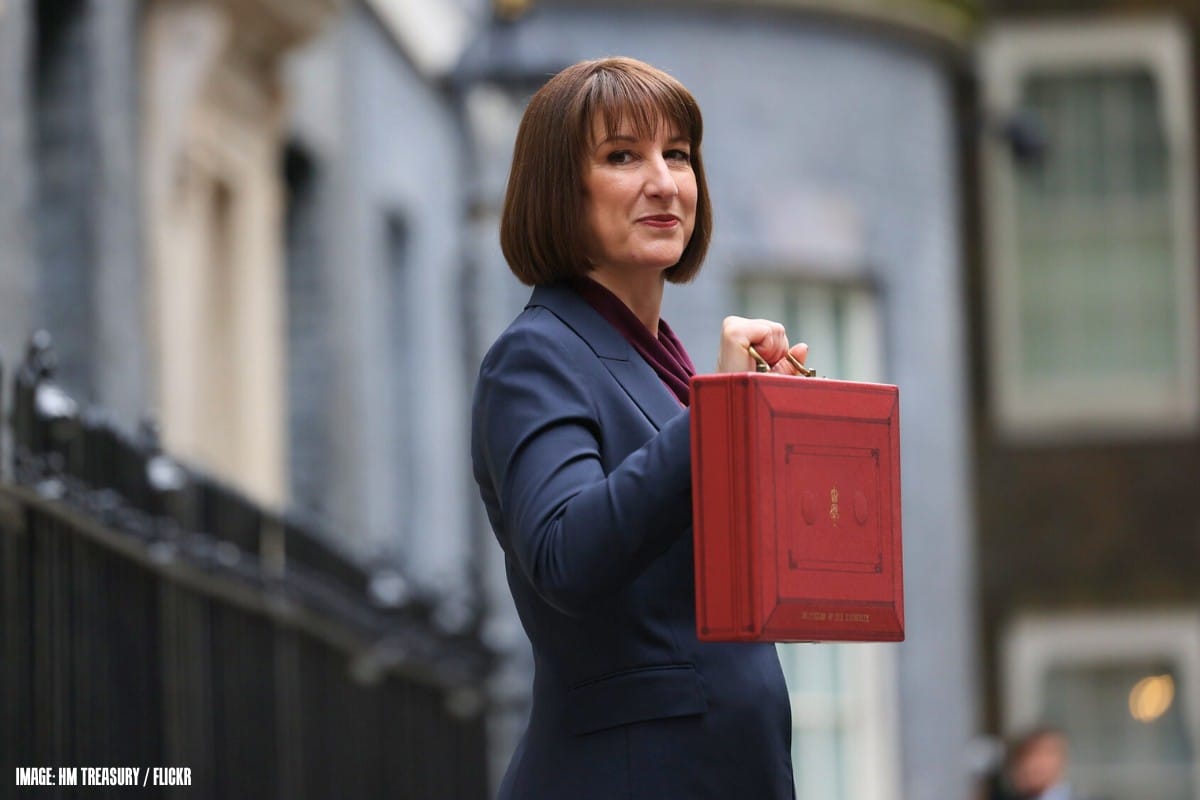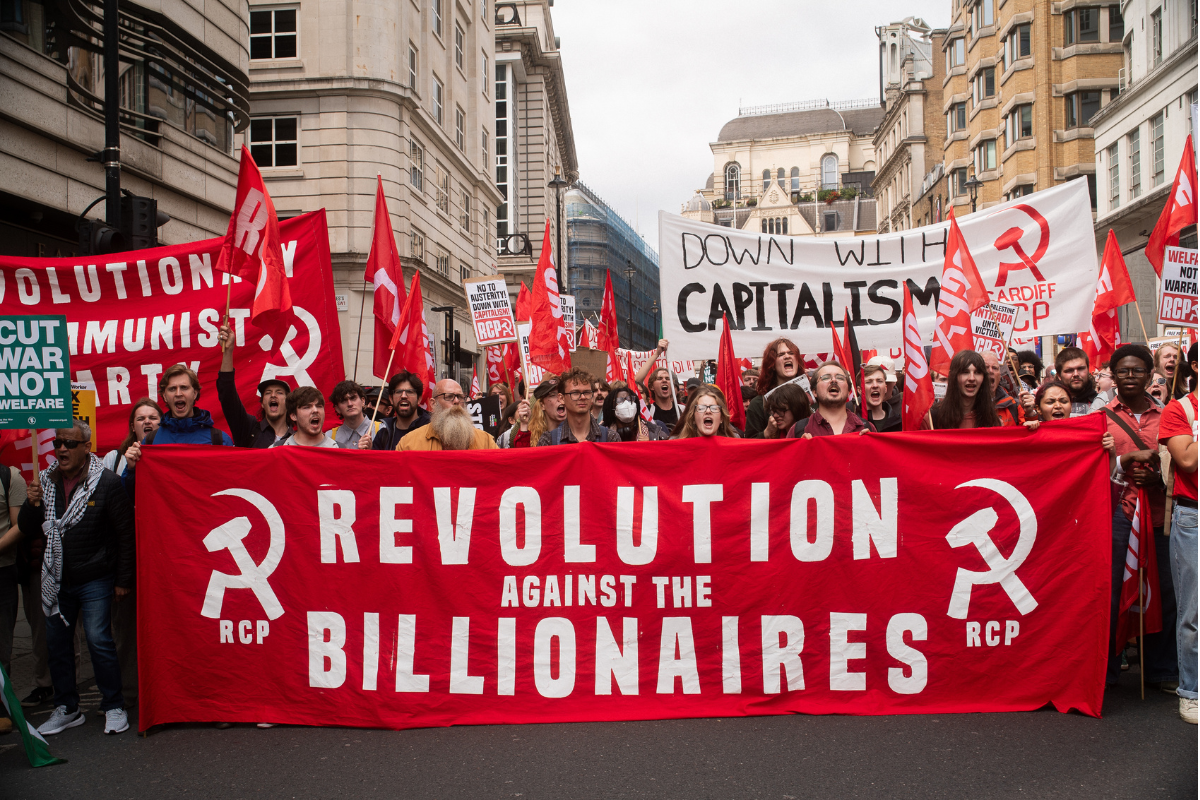It has been almost a year now since Labour came to power at the 2024 general election.
At the time, bourgeois commentators gushed about the party’s ‘landslide victory’; about the ‘electoral fortress’ and ‘parliamentary supermajority’ that Britain’s new prime minister – ‘Sir’ Keir Starmer – now presided over.
Twelve months later, however, and it is clear that such proclamations will be recorded in the history books alongside similarly hubristic assertions about the ‘unsinkable’ strength of the Titanic.
Starmer’s government has yet to crash into its proverbial political iceberg. But from day one, it has been battered by wave after wave of crisis; by a never-ending maelstrom of capitalist turbulence and turmoil.
Labour’s polling figures, meanwhile, have plummeted further and faster than a broken, flooded steel ship at sea.
But the torture isn’t over for Starmer and co. Even stormier waters lie ahead for British capitalism and its hapless helmsmen.
Wishful thinking
With her Spending Review statement on 11 June, Chancellor Rachel Reeves announced the economic equivalent of a rearranging of the deck chairs on that infamously ill-fated vessel.

The bulk of Reeves’ speech was dedicated to her plans for boosting economic growth.
This will be realised, the Chancellor suggested, through government investment in infrastructure; through deregulation to spur private investment; and through a commitment to ‘fiscal responsibility’ when it comes to the country’s public finances.
But all of these ambitions are a case of wishful thinking – or outright delusion – on the part of the current occupants of Downing Street.
This was hammered home by the latest figures for UK ‘growth’, released the day after Reeves’ Spending Review. These showed that Britain’s economy contracted by 0.3 percent in April – the worst decline in GDP for almost two years.
This is the cold reality facing British capitalism and its representatives.
Militarism and protectionism
The truth is that the capitalists have no interest in investing in the sclerotic UK economy. In fact, as the examples of British Steel and Thames Water demonstrate, global capital is fleeing the country, unwilling to put in the vast sums needed to modernise British industry and infrastructure.

At the same time, given Britain’s ever-growing burden of debt, capitalist creditors are in no mood to let the UK government borrow any more, restricting the potential for Keynesian spending and stimulus.
Despite all the talk of ‘growth’, one of the main sectors earmarked for an injection of taxpayers’ money is the ‘defence’ industry, as part of the Labour leaders’ drive for rearmament. But ramped up military expenditure will be a massive drain on the economy, not an impetus.
Promises of further ‘belt tightening’ and euphemistic ‘tough decisions’ regarding social spending, meanwhile, will only serve to bite even deeper into demand. Added to this is the tightening squeeze on ordinary households from rising utility bills and stubbornly-high supermarket prices.
With a shrinking market for goods and services at home, and an already-unsustainable mountain of public and private debt to pay off, maybe the Labour leaders hope to export their way out of this crisis?
This is what Starmer wants us to believe will happen, with his constant song-and-dance about this-or-that new trade deal that he has signed.
But the truth is that British capitalism cannot compete on the world stage. Industries like steel are being hammered, with plants in Wales and Scunthorpe closing. And the rise of protectionism is only going to add to the pressures on UK manufacturers and producers.
In turn, the burden will be passed onto workers, in the form of intensified attacks on jobs, wages, and conditions.
Elephant in the room
Elsewhere in her Spending Review, Reeves announced plans to allocate more money for the NHS and housing. But the sums promised are both too big for bankrupt British capitalism to afford, yet not nearly enough to resolve the crisis in either healthcare or homelessness.
Outside of these areas, meanwhile, there will be no more money made available for gutted government departments, crippled public services, or Britain’s lacerated welfare state.
The Chancellor desperately avoided mentioning the elephant in the room, however; the word that cannot be named: austerity.
But that is precisely what this big business government is lining up for the working class. Nobody believes that pie-in-the-sky ‘efficiency savings’ can be magicked out of the hat to avoid the pain of deeper cuts.
And the worst is still to come. The measures outlined on 11 June are but an appetiser for the platter of austerity that Reeves is due to serve up in her Autumn Budget.
All the while, the bond markets are circling like vultures above the moribund UK economy, with speculators swooping in to peck it apart at the first sign of vulnerability.
Shocks and surprises
After months of doom and gloom, the Labour leaders are determined to strike an optimistic – almost defiant – tone.
“I have made my choices,” Reeves stated to Parliament, discussing Labour’s economic proposals. “In place of chaos, I choose stability. In place of decline, I choose investment. In place of retreat, I choose national renewal.”

The problem is, none of these things are the government’s to choose.
Chaos and instability are baked into capitalism. It is the bankers and billionaires, meanwhile, who decide every country’s economic fate. Starmer’s government, under the diktats of capital, will be forced to retreat and take the path of austerity over ‘renewal’.
The crisis of capitalism has a habit, in the words of Robbie Burns, of making the best laid plans go awry.
Repeatedly, over the last year, Starmer and Reeves have suggested that hope is around the corner; that dry land is on the horizon. Yet time after time, every Treasury forecast or prediction has been blown out of the water by a new global shock.
The Labour leaders have promised Britain’s creditors that the government’s commitment to balancing the books is ‘non-negotiable’ and ‘ironclad’. But unexpected events have repeatedly pierced the supposedly impregnable hull of the government’s plans.
The ongoing conflict in Ukraine and withdrawal of US military guarantees has put pressure on the European establishment to put ‘guns before butter’; to prioritise warfare ahead of welfare – adding to the strains on government budgets.
Trump’s tariffs and trade war, meanwhile, threaten to push the world economy into a new recession, or even a slump, whilst adding to existing inflationary pressures.
Now, with its attacks on Iran, Israel – a terrorist state led by a self-interested, short-sighted rogue – is pouring petrol on the flames. A wider conflagration in the Middle East would be a disaster for the global economy, further slowing down growth and driving up prices.
And with the entire capitalist system wracked by tensions and contradictions, more such crises are sure to come.
Rise of Reform
Stagnation and decay. Rising rents, bills, and prices. Falling living standards. Crumbing services, utilities, and infrastructure. Collapsing industry.
This is what Nigel Farage and Reform UK are tapping into with their assertions that “Britain is broken”.
While the Labour leaders prepare the public for further austerity, Farage is opportunistically pledging to reverse the cuts to pensioners’ winter fuel allowance, and to scrap the cap on child benefits.
Similarly, while Starmer and his ministers hand over blank cheques to parasitic private profiteers, Farage is calling for the nationalisation of steel and water.
In short, having made significant political inroads at the recent local elections, Reform is increasingly looking to outflank Labour on the left.
The latest opinion polls show that Farage’s party is on course for a parliamentary majority. One survey even puts Reform on 32 percent support, 11 points ahead of both Labour and the Tories. Translated into electoral arithmetic, this would provide Reform with a massive 357 seats in the House of Commons.
Latest YouGov Westminster voting intention (8-9 June)
Ref: 29% (+1 from 1-2 June)
Lab: 23% (+1)
Con: 17% (-1)
Lib Dem: 15% (-2)
Green: 10% (+1)
SNP: 3% (=) pic.twitter.com/K9M42eSN2p— YouGov (@YouGov) June 10, 2025
Furthermore, studies suggest that Reform is making its biggest gains in areas with the highest rates of child poverty. This shows that it is deteriorating social conditions – not xenophobia – that is the primary cause for ordinary voters’ political shift towards Reform.
Above all, however, it is the failures of the ‘left’ that have enabled the rise of Reform. The inability – the refusal – of the leaders of the labour movement to provide a clear socialist alternative has resulted in a massive political vacuum in British politics.
And charlatans like Farage have been canny in seizing the chance to occupy this vacant space. Hence the surreal sight of this former City trader now demagogically presenting himself as a champion of the working class.
Sink their system
These limits of the ‘left’ were on full display on 7 June, at the People’s Assembly national demonstration against austerity.

Given the burning anger over cuts to welfare, mobilising a massive attendance of workers and youth for this important protest should have been an open goal. Instead, on the day, the size of the crowd could be measured in mere thousands.
This is not a reflection of the mood in society. There is an enormous accumulation of discontent and frustration, bubbling away beneath the surface, just looking for an outlet; a reference point.
The problem is the political programme – or lack thereof – on offer from the trade unions and the self-appointed leaders of the ‘left’.
Tepid demands to ‘tax the rich’ do not go nearly far enough. The world is on fire, yet these ‘lefts’ restrict themselves to firing a fiscal water pistol at this blazing inferno. And even worse, they appeal to the arsonists – the liberal establishment and their political representatives – to help put out the flames.
A severe situation requires a serious response. As the old socialist saying goes, you cannot cure cancer with an aspirin.
To galvanise the mass of workers and youth, and tackle the problem at its root, bold class-based demands are required, not mild tax-and-spend proposals.
That is why the communists of the RCP call for revolution against the billionaires. It is time to sink their system, and throw all the warmongers and capitalists overboard. Nothing less will suffice.






